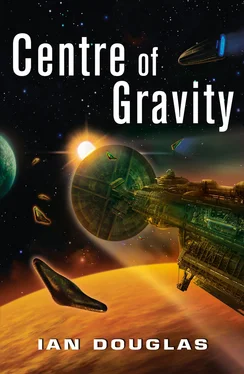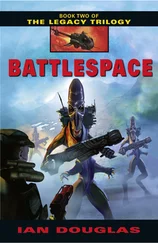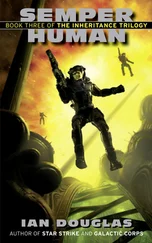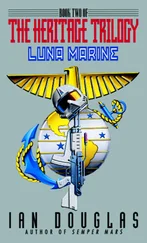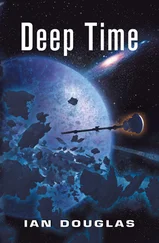She shook her head.
“I didn’t think so. Look … they explained it to me. You had a stroke, the stroke changed some of the neural pathways in your brain. You don’t love me anymore. I … I understand that. I don’t like it, but I understand.”
“They said you saved my life, Trev,” she told him. “By getting me to the medical center. And by agreeing to join the military, so they’d treat me. I never thanked you.”
He shrugged. “Nothing to thank.” In fact, he’d not realized at the time that he had agreed. The events of that horrible night five years ago were still blurred in his mind. He did remember the terribly icy fear, and knew he would have agreed to anything, anything to get treatment for Angela.
Later, Navy psytherapists had offered to clear up those memories … or to remove them. He’d refused on both counts.
He did find it interesting, though, that modern nanomedical science could fix a broken brain, but had very few ideas when it came to fixing a broken heart.
“I’ve missed you, Trev.”
He didn’t answer.
“Trev? Goddammit, don’t be like this!”
“And how am I supposed to be, Angela?” he demanded. “We had a good life together—”
“As squatties! Grubbing about in the Manhat Ruins like … like animals!”
“I don’t recall any complaint about it on your part at the time! So maybe life wasn’t so good. We had each other. We had our life together. I thought we were happy.” When she didn’t say anything to that, he pushed ahead. “You turned it all upside down, wouldn’t talk to me, wouldn’t even agree to see me! One meeting, one meeting with a counselor … and all you give me is an ultimatum. No discussion. No compromise. An ultimatum. You won’t live with me anymore.”
“Trevor …”
“By that time, I was already signed up for the service. They’d already tested me, found out I would make a good pilot, scheduled me for flight training. So it wasn’t like I was able to go back to the Ruins anyway.”
“Trev, if we’d gone back to live in the Ruins again, we’d both be dead now. You know that, don’t you? That impactor surge wiped out all of the Old City.”
He kept his face impassive, but … gods. What she’d just said hit home like an impactor in its own right. No. No, he’d not thought about that.
He wondered how he’d missed that small fact. For a long time, he’d thought Angela was dead … before realizing that when the impactor had sent that tidal wave smashing north through the Narrows, she was already living with her new family in Haworth, beyond the wave’s reach. For a time, he’d not even been sure where Haworth was; it might have been a part of Morningside Heights, all of which had been washed away.
He’d never stopped to think at the time that if things had worked out the way he’d wanted, he and Angela would have been on Manhattan when the wave struck. They might have survived—part of the TriBeCa Tower where they’d lived was still standing even yet—but there would have been no guarantees.
“Look, it’s no good talking about what might have happened,” he told her. “We’re here, and we’re who we are now. And to tell the truth, I don’t know you anymore. You’re not the girl I fell in love with any longer.”
“I’ve grown, Trevor. And I’ve healed .”
“Yeah, they cured you of me, didn’t they?”
“That’s not fair!”
“Well, well,” another voice said, interrupting Gray’s retort. “What have we here? A couple of sweet monogie pervs?”
Gray blinked and looked to his left. Collins was there, smirking at them, with Kirkpatrick looming behind her. “Go to hell, Collins,” he told her. “This is private.”
“That’s right. Private . Just one partner at a time, and you mate for all eternity.” She made a face. “Disgusting.”
“Do I know you?” Angela asked. She would be checking Collins’ military id through her own implants. “Lieutenant … Collins?”
“No, honey. We’ve not met. I’ve heard a lot about you, though, from your monogie lover here!”
“Damned squattie,” Kirkpatrick muttered. “Thinks he’s good as real Navy. …”
“You’re obviously drunk, Kirkpatrick,” Gray said mildly. “How the hell did you manage to bypass your deet?”
“None’ve … your fuckin’ squattie business, squat-face,” Kirkpatrick managed to say. Was it alcohol, Gray wondered, or a recreational drug? Either way, he rather hoped that the man’s corder was picking this up. It meant nonjudicial punishment at the very least, a court-martial at worst … and that simply couldn’t happen to a more wonderful guy. …
Collins seemed to be her usual coldly mocking and cruel self. She was too smart to get herself wasted like that. Unfortunately.
“I don’t recall inviting either of you into this alcove,” Gray told them. “You want to make fun of me, fine, but have the decency to leave this person out of it.”
“That’s great!” Kirkpatrick said. “A … a monogie talkin’ ’bout decent !”
“Come on, Kirkpatrick,” Collins said. “We know when we’re not wanted!”
“Damned monogies …”
“How much did you have?” Collins asked him as she led the unsteady Kirkpatrick away.
“Friends,” Gray said thoughtfully as they moved out of earshot. “Got to find myself some.”
“Those were … friends?”
“No. They’re in my squadron, but friends? No.”
Learning his place within the culture in which he’d suddenly found himself, learning to fit in , had taken up a lot of Gray’s attention and energy over these past five years.
Life in the Periphery, scrabbling for survival within the half-flooded ruins scattered around the margins of the North American Union, tended to be hard and it tended to be short. It had also been forced to adapt. Two-adult-person family units loosely allied with other two-adult units had proven to be the most successful when it came to the necessities of hunter-gatherer lifestyles. With larger communities pooling food and other scarce resources, there were always shortages—and shortages either led to brutal and usually fatal fights to determine who went without, or else everyone in the group suffered when the little that was available was shared with all. Smaller units tended to be more flexible … and they isolated groups exposed to the Blood Death virus or other pathogens.
For the full citizens of the Union and the larger Confederation, larger, extended families had been the norm for centuries. With nanoassemblers literally building food and other necessities from dirt and garbage, there was more than enough to go around. Children were best raised in crèche-schools where they learned to socialize with others as they received their electronic educational downloads. And the Blood Death and other diseases were, for the most part, non-existent, or at the least well controlled by modern nanomedical science.
For the citizens of the Union, the Prims of the Periphery were old-fashioned, stubborn, ignorant, and dirty—much like the inhabitants of Appalachia who still lacked electricity or indoor plumbing back in the twentieth century. There was even a memory of that in one of the names civilized New Yorkers had for the Manhattan Ruins: “Newyorkentucky.” For the inhabitants of the Periphery, full citizens of the Union were selfish, self-centered, and shallow, far too preoccupied with social fads and electronic toys, superficial at best, decadent and perverted at worst. Spoiled , in other words.
The divide between the two had become far wider and deeper over the past couple of centuries, to the point that there seemed to be no way of bridging the gap.
Читать дальше
